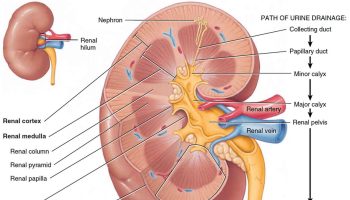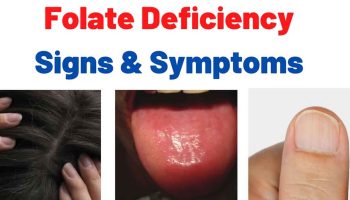Contents
What is schizoid personality disorder
Schizoid personality disorder is an uncommon mental condition in which a person has a lifelong pattern of indifference to others, social isolation, avoidance of social activities and consistently shy away from interaction with others. They also have a limited range of emotional expression. People with schizoid personality disorder usually only seek treatment for a related problem, such as depression.
Schizoid personality disorder is not as disabling as schizophrenia. It doesn’t cause the disconnection from reality (in the form of hallucinations or delusions) that occurs in schizophrenia.
A person with schizoid personality disorder often:
- Appears distant and detached
- Avoids social activities that involve emotional closeness with other people
- Does not want or enjoy close relationships, even with family members
If you have schizoid personality disorder, you may be seen as a loner or dismissive of others, and you may lack the desire or skill to form close personal relationships. Because you don’t tend to show emotion, you may appear as though you don’t care about others or what’s going on around you.
Individuals with schizoid personality disorder may have particular difficulty expressing anger, even in response to direct provocation, which contributes to the impression that they lack emotion. Their lives sometimes seem directionless, and they may appear to “drift” in their goals. Such individuals often react passively to adverse circumstances and have difficulty responding appropriately to important life events. Because of their lack of social skills and lack of desire for sexual experiences, individuals with this disorder have few friendships, date infrequently, and often do not marry. Occupational functioning may be impaired, particularly if interpersonal involvement is required, but individuals with this disorder may do well when they work under conditions of social isolation. Particularly in response to stress, individuals with this disorder may experience very brief psychotic episodes (lasting minutes to hours) . In some instances, schizoid personality disorder may appear as the premorbid antecedent of delusional disorder or schizophrenia. Individuals with this disorder may sometimes develop major depressive disorder. Schizoid personality disorder most often co-occurs with schizotypal, paranoid, and avoidant personality disorders.
The cause of schizoid personality disorder is unknown. Talk therapy, and in some cases medications, can help.
Schizoid personality disorder outlook (prognosis)
Schizoid personality disorder is a long-term (chronic) illness that usually does not improve much over time. Social isolation often prevents the person from asking for help or support.
Limiting expectations of emotional intimacy may help people with this condition make and keep connections with other people.
Schizoid personality disorder causes
Cause of schizoid personality disorder is unknown. It may be related to schizophrenia and shares many of the same risk factors.
Personality is the combination of thoughts, emotions and behaviors that makes you unique. It’s the way you view, understand and relate to the outside world, as well as how you see yourself. Personality forms during childhood, shaped through an interaction of inherited tendencies and environmental factors.
In normal development, children learn over time to accurately interpret social cues and respond appropriately. What causes the development of schizoid personality disorder is unknown, although a combination of genetic and environmental factors, particularly in early childhood, may play a role in developing the disorder.
Risk factors for developing schizoid personality disorder
Factors that increase your risk of developing schizoid personality disorder include:
- Having a parent or other relative who has schizoid personality disorder, schizotypal personality disorder or schizophrenia
- Having a parent who was cold, neglectful or unresponsive to emotional needs
Schizoid personality disorder complications
People with schizoid personality disorder are at an increased risk of:
- Developing schizotypal personality disorder, schizophrenia or another delusional disorder
- Other personality disorders
- Major depression
- Anxiety disorders.
Schizoid personality disorder symptoms
If you have schizoid personality disorder, it’s likely that you:
- Prefer being alone and choose to do activities alone
- Don’t want or enjoy close relationships
- Feel little if any desire for sexual relationships
- Feel like you can’t experience pleasure
- Have difficulty expressing emotions and reacting appropriately to situations
- May seem humorless, indifferent or emotionally cold to others
- May appear to lack motivation and goals
- Don’t react to praise or critical remarks from others
Schizoid personality disorder usually begins by early adulthood, though some features may be noticeable during childhood. These features may cause you to have trouble functioning well in school, a job, socially or in other areas of life. However, you may do reasonably well in your job if you mostly work alone.
Schizotypal personality disorder and schizophrenia
Although a different disorder, schizoid personality disorder can have some similar symptoms to schizotypal personality disorder and schizophrenia, such as a severely limited ability to make social connections and a lack of emotional expression. People with these disorders may be viewed as odd or eccentric.
Even though the names may sound similar, unlike schizotypal personality disorder and schizophrenia, people with schizoid personality disorder:
- Are in touch with reality, so they’re unlikely to experience paranoia or hallucinations
- Make sense when they speak (although the tone may not be lively), so they don’t have conversational patterns that are strange and hard to follow.
Schizoid personality disorder diagnosis
Schizoid personality disorder is diagnosed based on a psychological evaluation. The health care provider will consider how long and how severe the person’s symptoms are.
After a physical exam to help rule out other medical conditions, your primary care provider may refer you to a mental health professional for further evaluation.
Diagnosis of schizoid personality disorder is typically based on:
- Thorough discussion of your symptoms
- Symptoms listed in the Diagnostic and Statistical Manual of Mental Disorders (DSM-5), published by the American Psychiatric Association
- Your medical and personal history.
Schizoid personality disorder DSM 5
Schizoid personality disorder DSM 5 diagnostic criteria 1:
- A. A pervasive pattern of detachment from social relationships and a restricted range of expression of emotions in interpersonal settings, beginning by early adulthood and present in a variety of contexts, as indicated by four (or more) of the following:
- Neither desires nor enjoys close relationships, including being part of a family.
- Almost always chooses solitary activities.
- Has little, if any, interest in having sexual experiences with another person.
- Takes pleasure in few, if any, activities.
- Lacks close friends or confidants other than first-degree relatives.
- Appears indifferent to the praise or criticism of others.
- Shows emotional coldness, detachment, or flattened affectivity.
- B. Does not occur exclusively during the course of schizophrenia, a bipolar disorder or depressive disorder with psychotic features, another psychotic disorder, or autism spectrum disorder and is not attributable to the physiological effects of another medical condition .
Note: If criteria are met prior to the onset of schizophrenia, add “premorbid,” i.e., “schizoid personality disorder (premorbid).”
The essential feature of schizoid personality disorder is a pervasive pattern of detachment from social relationships and a restricted range of expression of emotions in interpersonal settings. This pattern begins by early adulthood and is present in a variety of contexts.
Individuals with schizoid personality disorder appear to lack a desire for intimacy, seem indifferent to opportunities to develop close relationships, and do not seem to derive much satisfaction from being part of a family or other social group (Criterion A 1). They prefer spending time by themselves, rather than being with other people. They often appear to be socially isolated or “loners” and almost always choose solitary activities or hobbies that do not include interaction with others (Criterion A 2) . They prefer mechanical or abstract tasks, such as computer or mathematical games. They may have very little interest in having sexual experiences with another person (Criterion A 3) and take pleasure in few, if any, activities (Criterion A 4) . There is usually a reduced experience of pleasure from sensory, bodily, or interpersonal experiences, such as walking on a beach at sunset or having sex. These individuals have no close friends or confidants, except possibly a first-degree relative (Criterion A 5).
Individuals with schizoid personality disorder often seem indifferent to the approval or criticism of others and do not appear to be bothered by what others may think of them (Criterion A 6). They may be oblivious to the normal subtleties of social interaction and often do not respond appropriately to social cues so that they seem socially inept or superficial and self-absorbed. They usually display a “bland” exterior without visible emotional reactivity and rarely reciprocate gestures or facial expressions, such as smiles or nods (Criterion A 7). They claim that they rarely experience strong emotions such as anger and joy. They often display a constricted affect and appear cold and aloof. However, in those very unusual circumstances in which these individuals become at least temporarily comfortable in revealing themselves, they may acknowledge having painful feelings, particularly related to social interactions.
Schizoid personality disorder should not be diagnosed if the pattern of behavior occurs exclusively during the course of schizophrenia, a bipolar or depressive disorder with psychotic features, another psychotic disorder, or autism spectrum disorder, or if it is attributable to the physiological effects of a neurological (e.g., temporal lobe epilepsy) or another medical condition (Criterion B).
Schizoid personality disorder treatment
People with this disorder will often not seek treatment. For this reason, little is known about which treatments work.
If you have schizoid personality disorder, you may prefer to go your own way and avoid interacting with others, including doctors. You may be so used to a life without emotional closeness that you’re not sure you want to change — or that you can.
You might agree to start treatment only at the urging of a family member who is concerned about you. But help from a mental health professional who’s experienced in treating schizoid personality disorder can have a major positive impact. Treatment options include:
- Talk therapy (psychotherapy). Psychotherapy can be helpful. If you’d like to develop closer relationships, a modified form of cognitive behavioral therapy may help you change the beliefs and behaviors that are problems. A therapist understands your need for personal space and how difficult it is for you to open up about your inner life. He or she can listen to and help guide you without pushing too hard.
- Note: Talk therapy may not be effective. This is because people with this disorder may have a hard time forming a good working relationship with a therapist.
- Group therapy. A goal of individual treatment may be a group setting in which you can interact with others who are also practicing new interpersonal skills. In time, group therapy may also provide a support structure and improve your social skills.
- Medications. Although there’s no specific drug to treat schizoid personality disorder, certain drugs can help with issues such as anxiety or depression.
With appropriate treatment and a skilled therapist, you can make significant progress and improve your quality of life.
People with schizoid personality disorder often do well in relationships that don’t focus on emotional closeness. They tend to be better at handling relationships that focus on:
- Work
- Intellectual activities
- Expectations.
- American Psychiatric Association . Diagnostic and statistical manual of mental disorders. 5. Washington, DC: American Psychiatric Association; 2013.[↩]





